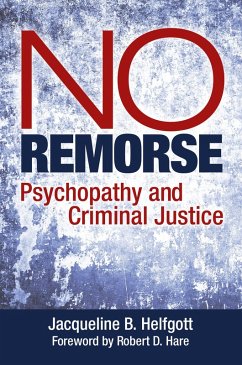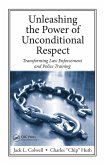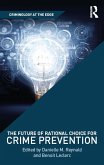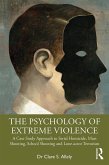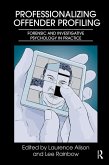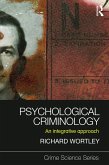An in-depth interdisciplinary perspective on psychopathy suitable for those interested in criminology and criminal justice, sociology, psychology, anthropology, and other social science as well as general knowledge.
An innovative and indispensable resource for those wishing to investigate how and why psychopathy is important in understanding criminal behavior and its response, No Remorse: Psychopathy and Criminal Justice provides a comprehensive examination of the empirical research and cultural understanding of psychopathy.
The book examines ways in which the construct and concept of psychopathy have made their way into criminological theory and criminal justice practice. It offers a focused look at how the term "psychopath" is used and understood in law enforcement, the courts, corrections, victim services, and juvenile justice. Additionally, it examines historical, research, and cultural perspectives on psychopathy for understanding criminal behavior, exploring theories of and research into psychopaths, psychopathy and gender, and representations of psychopaths in film and literature.
An innovative and indispensable resource for those wishing to investigate how and why psychopathy is important in understanding criminal behavior and its response, No Remorse: Psychopathy and Criminal Justice provides a comprehensive examination of the empirical research and cultural understanding of psychopathy.
The book examines ways in which the construct and concept of psychopathy have made their way into criminological theory and criminal justice practice. It offers a focused look at how the term "psychopath" is used and understood in law enforcement, the courts, corrections, victim services, and juvenile justice. Additionally, it examines historical, research, and cultural perspectives on psychopathy for understanding criminal behavior, exploring theories of and research into psychopaths, psychopathy and gender, and representations of psychopaths in film and literature.

